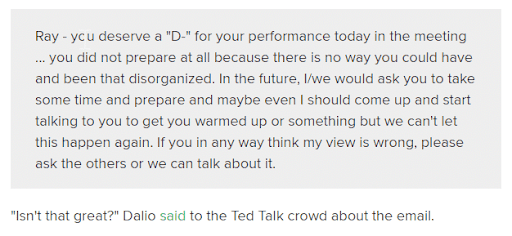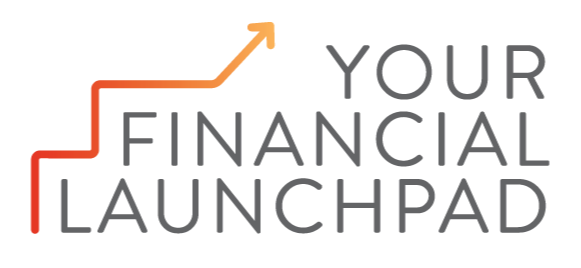The Impact of (Really) Honest Feedback

The last time you complained about something to a close friend, how did they respond?
Did they empathize with you? Tell you how awful it all is? Nod in sympathy?
Not my friend Elizabeth.
Less than a year after my first husband, Malcolm, died, I went to visit her. On the outside, I did a passable job of appearing normal. On the inside, though, I was in rough shape, deeply mourning the loss of my best friend.
At one point, Elizabeth and I found ourselves alone, talking about how I was doing. I let loose. I shared my deep anger at one of Malcolm’s family members who had behaved badly, both before his death and afterwards.
Elizabeth listened patiently for a while and then she stopped me. I can’t recall the exact words she used, but in essence, she told me that my anger wasn’t about the family member; it was about Malcolm’s loss. Before I could move forward, she insisted gently, I would have to stop blaming this person and let go of my anger. I argued with her; she hugged me and stood her ground.
It was not what I wanted to hear. In fact, for a short while that day, Elizabeth’s words made me even angrier and sadder. I didn’t doubt for a moment that Elizabeth cares deeply about me and that she meant well, but it was not what I needed.
Or so I thought.
It turns out that Elizabeth’s act of caring honesty was the best thing that could have happened to me at that moment.
When I thought about what she’d said, I realized she was right. I was still really angry at the family member, but I also realized that my overall anger was about the larger picture; about the fact that at thirty-two, I had lost the most important person in my life.
Elizabeth helped me to understand that staying rooted in anger would harm me. My perspective shifted, and that’s when I started to heal.
I am grateful to Elizabeth for her honesty. It allowed me to take a good look at my behaviour and move past what could easily have become an anchor.
Looking back, the moments when I have made the most progress, financially or otherwise, are inextricably linked to my receiving critical feedback from people who care about me. I’m not talking about nasty comments from people looking to wound (those people have to go).
I’m referring to frank suggestions aimed at helping me grow.
Having a Cheerleader in your life is important emotionally, but if you want to grow and succeed, you need a Challenger, too.
“Life is much better with good results”
Ray Dalio, the world’s most successful hedge fund manager, thinks that honest feedback is so important to success that it is a requirement in his investment firm, Bridgewater Associates.
To work for him, you need to be comfortable giving and receiving frank feedback. If you’re terrible at something, you can expect to hear about it.
Everyone, including Ray, is treated this way. Here is a copy of a critical email he received from an employee, along with his response:

I’ll give Ray credit for his enthusiastic response to the withering critique!
In the WorkLife podcast with Adam Grant on How to Love Criticism, Adam asks Ray how he and his employees deal with such brutal honesty?
Ray’s answer is striking: “Life is much better with good results. You can’t get those good results without honest feedback on what’s not working.”
When you open yourself up to critical feedback and actually seek it out, you learn about your blind spots, something which Ray insists is a necessary condition for success.
My turn on the receiving end
Think about a moment when you had to perform in some way. Maybe you had to give a speech, lead a project, or do a presentation for a group.
What feedback did you get?
Did anyone dare to say anything critical?
If so, how did you react?
Here’s a recent experience in which I received frank feedback:
A few years ago, I spent a day teaching financial literacy to a group of high school students.
Four business teachers took turns participating along with the students.
Roughly one week later, the organizing teacher sent me an email with their feedback. All but one student had loved the workshop.
But here’s where things got really interesting:
● Teachers #1 and #2 wrote glowing reviews. They loved the material, the presentation, the works. No critical comments were provided.
● Teacher #3, who had been quite animated during the period, wrote to say that the material and my teaching style were good, but that “the presentation was a bit one note”.
This person would have preferred to see a greater variety of activities beyond what I had offered in the workbooks and the session.
● Teacher #4, who I was certain hated everything about my workshop – having spent the entire period with arms crossed, staring sternly at me (think Eastern block bouncer from the Cold War days) – wrote that if they had learned this material when they were in high school, it would have transformed their life. (This is where you knock me over with a feather.)
● Teacher #4 went on to suggest that I take this on the road to all schools and offered detailed recommendations on how to arrange the material to make it more student-friendly.
There was also an offer to meet with me to discuss further.
I’m not going to lie – I really appreciated the enthusiasm of the first two teachers.
That said, though, it’s the information from the latter two that made me a better educator.
It wasn’t exactly fun to read Teacher #3’s comment, but it took me about two seconds to realize that it was a fair point. Activities that work for adults don’t necessarily translate to seventeen-year-old students.
As for Teacher #4’s suggestions, they’re pure gold: “Keep the material, it’s good, but break it up a bit more in the following ways and throw in a competition and a prize.”
There, in a nutshell, is the detailed path forward for my financial literacy workshop for older teens from someone with decades of experience!
A bit of pain and a whole lot of benefit.
Find critical feedback
In his book So Good They Can’t Ignore You, author Cal Newport suggests that there are two fundamental steps to developing skills that are highly valued.
First, you need to employ Deliberate Practice.
If, for example, you want to become an excellent basketball player, you wouldn’t just bang off one hundred shots every day hoping to get better; you’d practice deliberately, with the intention of perfecting your form.
Second, you would get critical feedback – there it is again – from someone who is knowledgeable in your field.
You can only improve so much on your own. At some point, you run into the limitation that you don’t know what you don’t know. It takes a knowledgeable outsider to give you feedback on what you’re doing right and, equally important, where and how you can improve.
If you don’t have an Elizabeth in your life who volunteers critical feedback, ask for it. Give people permission to be honest with you and accept their suggestions as graciously as you can.
Set aside your emotional reactions for a bit and ask, “How can I use this feedback to move forward and/or improve?”
If you have any stories or suggestions about feedback that helped you out, please share your thoughts below. I’d love to hear from you.
Want to chat about the best way to improve or strengthen your finances?
Set up a free Discovery Call. We'll go over your current situation, the challenges you face, and some options to get you on the path to achieving your financial goals.


